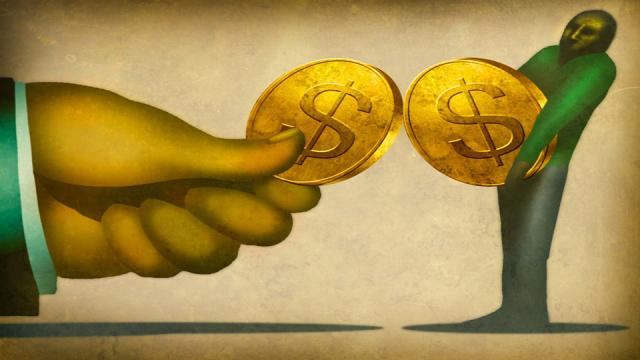
The European Commission ruled on Wednesday that Starbucks and Fiat benefited from illegal tax deals with the Dutch and Luxembourg authorities, dealing a heavy blow to profit-shielding arrangements used by many multinationals.
Antitrust commissioner Margrethe Vestager said all firms must pay a "fair share" and ordered the Netherlands to recover 20-30 million euros ($23-34 million) in back taxes from the U.S. coffee shop chain. Luxembourg must recover a similar amount from Italian-U.S. carmaker Fiat Chrysler Automobiles.
The sums will barely dent revenues. The bigger impact lies ahead for global corporations whose strategies to avoid tax are under attack on various fronts from cash-strapped governments. One leading consultant said this first of several E.U. cases to be concluded would "rock the corporate world to its very core."
Starbucks immediately said it would appeal, echoing the Dutch government in accusing the European Union executive of significant "errors" in its assessment. Luxembourg, where much of the economy has been built on attracting multinational firms, said it disagreed and reserved its right to appeal.
Fiat denied receiving any aid from the Luxembourg state.
Vestager, a Dane who has denied accusations of anti-American bias in launching other tax probes into Apple and Amazon and competition inquiries into Google, took care to avoid intruding on E.U. governments' jealously guarded rights to set their own tax rates. The issue, she stressed, was firms being treated differently within the same national system.
"The decisions send a clear message," she told reporters in Brussels. "National tax authorities cannot give any company, however large or powerful, an unfair competitive advantage compared to others. For most companies, especially the small and medium-sized, I hope this is a reassuring message."
The Commission said Starbucks benefited from a tax ruling -- an assurance of future tax levels -- from Dutch authorities in 2008 and Fiat from a ruling in Luxembourg in 2012. It concluded that the taxable profits for Fiat's Luxembourg unit could have been 20 times higher under normal market conditions.
The precise sum to be paid must now be set by Luxembourg and the Netherlands on the basis of the Commission's methodology.
Marc Sanders of tax advisers Taxand said the ruling would rock the corporate world to its very core, throwing tax planning into disarray: "Whilst multinationals were lured to E.U. states with offers of low tax rates as an incentive, little did they know that, despite having agreement at the highest national level, this would come back and bite a decade later," he said.
"We Do Not Stop Here"
Warning that "we do not stop here," Vestager described the cases of Apple in Ireland and Amazon in Luxembourg, where the Commission also suspects the companies of benefiting from illegal state subsidies via the tax system, as "very different." She declined to say when she would rule on them.
Inquiries are also continuing into the Belgian government's treatment of dozens of unidentified companies.
"More cases may come if we have indications that E.U. state aid rules are not being complied with," she warned, while noting that there was a broader E.U. and global attempt, coordinated by the rich nations of the OECD, to crack down on tax avoidance using artificial cash flows through ultra-low tax regimes.
"We cannot achieve fair tax competition in Europe with enforcement of E.U. state aid rules alone," Vestager said. "The fight against tax evasion and tax avoidance can only be won with a combination ... of state aid rules and legislative responses." Related Coverage
Vestager said Fiat's Luxembourg unit paid "not even" 0.4 million euros in corporate tax last year and Starbucks' Dutch subsidiary less than 0.6 million euros. Starbucks said it paid an average global effective tax rate of about 33 percent.
"Starbucks shares the concerns expressed by the Netherlands government that there are significant errors in the decision, and we plan to appeal since we followed the Dutch and OECD rules available to anyone," a spokesman said.
Commission President Jean-Claude Juncker has rejected calls for him to resign because the Luxembourg tax system was developed during the near quarter-century he served as finance minister and prime minister.
Since taking up the E.U. post a year ago, he has said the Commission will work to level the international playing field. His successors in the Luxembourg government insist that their small economy, which turned to finance when steelmaking collapsed, is continuing to attract investment.
Vestager avoided questions about Juncker's role, though the former Danish economy minister did say: "In my previous position I would be somewhat embarrassed if there was a negative decision that my country's tax authority didn't get it right."
Originally published by Reuters
3 WAYS TO SHOW YOUR SUPPORT
- Log in to post comments











